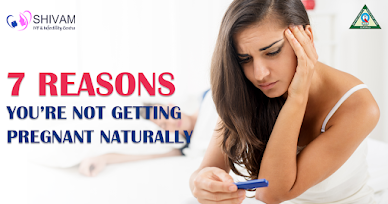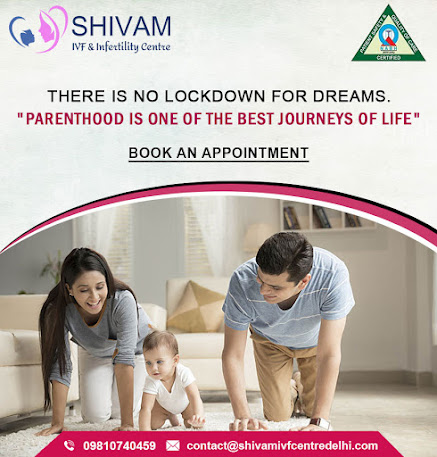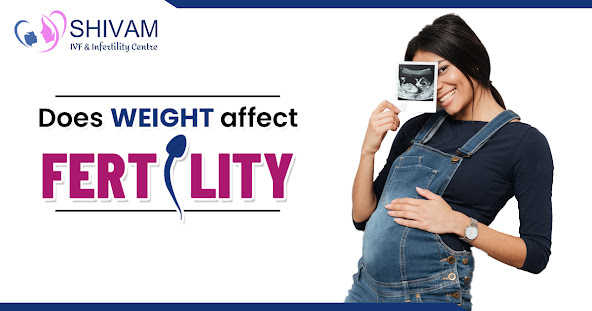7 REASONS YOU’RE NOT GETTING PREGNANT NATURALLY
The journey toward
parenthood is a deeply personal and transformative experience for many
individuals and couples. While conceiving a child naturally is the
traditional path to parenthood, it is essential to acknowledge that there are
various reasons why some individuals may choose not to pursue this route. In
recent times, advancements in medical technology and evolving societal norms
have provided individuals with alternative paths to parenthood
Shivam IVF
and Fertility Centre a well-known and best IVF Centre in Delhi, shares with you the seven
major drawbacks of why you’re not getting pregnant naturally.
Let’s
delve into it :
1. Ovulation Disorder: Ovulation
disorders can disrupt the regular release of eggs from the ovaries, making it
difficult to conceive. Some common ovulation disorders include:
- PCOS (Polycystic Ovary Syndrome): PCOS is a hormonal condition characterised by enlarged ovaries with many tiny cysts. Women with PCOS may experience difficulties with ovulation, leading to infertility.
- Hypothalamic Dysfunction: The hypothalamus, a part of the brain, plays a crucial role such as excessive stress, and excessive exercise in regulating the hormones involved in ovulation.
- Premature Ovarian Insufficiency (POI): POI refers to a condition where the ovaries stop functioning normally before the age of 40. It can lead to irregular or absent ovulation, reduced egg quantity, and infertility.
2. Blocked fallopian tubes: Blocked fallopian tubes can cause infertility and also increase the risk of certain pregnancy complications if conception does occur. Note that not all pregnancies with blocked fallopian tubes will result in complications, and each situation is unique.
·
Ectopic pregnancy: A blocked fallopian tube increases the risk of
ectopic pregnancy, which occurs when a fertilized egg implants and grows
outside the uterus, typically in the fallopian tube. Ectopic pregnancies are
not viable and can be life-threatening for the mother if left untreated.
·
Higher risk of tubal pregnancy rupture: In cases where an ectopic
pregnancy occurs in a blocked fallopian tube, there is a risk of rupture. As
the embryo grows, it can cause the fallopian tube to stretch and eventually
burst, leading to internal bleeding. This is a medical emergency that requires
quick attention.
· Pelvic inflammatory disease (PID): PID can lead to scarring and blockages in the fallopian tubes, increasing the risk of infertility and complications during pregnancy.
3.
Uterine abnormalities: Structural abnormalities of the uterus, such as
uterine fibroids, and polyps, can interfere with implantation or proper
development of the embryo.
·
Uterine fibroids and Polyps: These noncancerous growths in the uterus
can interfere with embryo implantation or cause difficulties in maintaining a
pregnancy. Depending on the size, location, and number of fibroids, they may
increase the risk of miscarriage, preterm labour, or fetal malpresentation.
Uterine polyps are small, benign growth on the inner lining of the uterus that can
affect fertility and increase the risk of miscarriage.
· Uterine septum and adhesions: A uterine septum is a congenital condition where a band of tissue divides the uterus partially or completely. This abnormality can increase the risk of miscarriage, preterm labor, and poor fetal growth. Adhesions are bands of scar tissue that form inside the uterus, often as a result of previous uterine surgery or infections. They can cause infertility by blocking the fallopian tubes or interfering with implantation.
· Uterine anomalies: Various congenital uterine anomalies, such as a bicornuate uterus, and didelphys uterus, can increase the risk of pregnancy complications. These abnormalities can affect implantation, fetal growth, and the ability of the uterus to stretch and accommodate a growing baby.
4. Male factor infertility: Infertility issues can also originate from the male partner. Low sperm count, poor sperm motility, or abnormal sperm morphology can reduce the chances of fertilizing an egg naturally.
·
Male factor infertility: Male factor infertility refers to issues
related to the male partner that can affect the couple's ability to conceive
naturally. These factors can reduce the chances of fertilization and successful
pregnancy.
· Genetic abnormalities: Some male factor infertility cases can be attributed to genetic abnormalities, such as chromosomal disorders or gene mutations. Genetic testing may be conducted to identify any underlying issues and provide appropriate counselling and treatment options.
· Preconception care: When dealing with male factor infertility, it's essential for both partners to engage in preconception care. This involves adopting a healthy lifestyle, including regular exercise, a balanced diet.
5. Age-related decline in fertility: As women age, the quality and quantity of their eggs decline, resulting in reduced fertility. Advanced maternal age, typically defined as being over 35, can increase the risk of infertility and complications during pregnancy.
· Decreased egg quality: As women age, the quantity and quality of their eggs decline. Older eggs are more likely to have chromosomal abnormalities, which can lead to a higher risk of miscarriage or genetic disorders such as Down syndrome.
·
Diminished ovarian reserve: Ovarian reserve refers to the number of eggs
remaining in a woman's ovaries. With age, the ovarian reserve decreases,
resulting in fewer eggs available for fertilization and a reduced chance of
conception.
- Increased risk of chromosomal abnormalities: The risk of chromosomal abnormalities in embryos increases. This can result in a higher likelihood of miscarriage or the need for invasive prenatal testing such as chorionic villus sampling (CVS) to assess the baby's health.
6. Hormonal imbalances: Disruptions in hormone levels can affect ovulation and fertility.
·
Gestational hypertension: Hormonal imbalances, along with other factors,
can contribute to the development of gestational hypertension or preeclampsia.
These conditions involve high blood pressure during pregnancy and can
potentially lead to complications for both the mother and the baby.
· Thyroid disorders: Thyroid hormone imbalances, such as hypothyroidism or hyperthyroidism, can affect fertility and increase the risk of complications during pregnancy.
· Placental abnormalities: Hormonal imbalances may impact the development and function of the placenta, which is essential for providing nutrients and oxygen to the developing baby. Placental abnormalities can lead to complications such as intrauterine growth restriction (IUGR) or placental abruption.
7. Chronic health conditions: Certain chronic health conditions, may impact fertility and increase the risk of pregnancy complications.
·
Diabetes and Hypertension: Women with diabetes may face challenges in
conceiving and have a higher risk of pregnancy complications. Chronic
hypertension or high blood pressure can lead to complications during pregnancy.
· Autoimmune disorders: Conditions like systemic lupus erythematosus (SLE), rheumatoid arthritis, and antiphospholipid syndrome can increase the risk of infertility and pregnancy complications, including miscarriage, preterm birth, preeclampsia, and fetal growth restriction.
· Asthma and Epilepsy: Asthma, a chronic respiratory condition, may require careful management during pregnancy to ensure adequate oxygen supply to the developing fetus. Epilepsy may face challenges in conceiving due to hormonal imbalances or side effects of anti-seizure medications. Certain anti-seizure medications can pose risks to the developing fetus and may require adjustment during pregnancy.
In conclusion, parenthood is a deeply personal
and fulfilling experience, and there is no one-size-fits-all approach to
achieving it. Not getting pregnant naturally can be a result of personal
choices, health concerns, or infertility challenges. If you are looking for the
best
IVF clinic in Delhi, make an appointment with Dr.Bhavana Mittal
of Shivam IVF & Fertility Centre to discuss your pregnancy complications.
Source url:-https://shivamivfcentredelhi.com/blog-details/7-reasons-you-re-not-getting-pregnant-naturally




Comments
Post a Comment